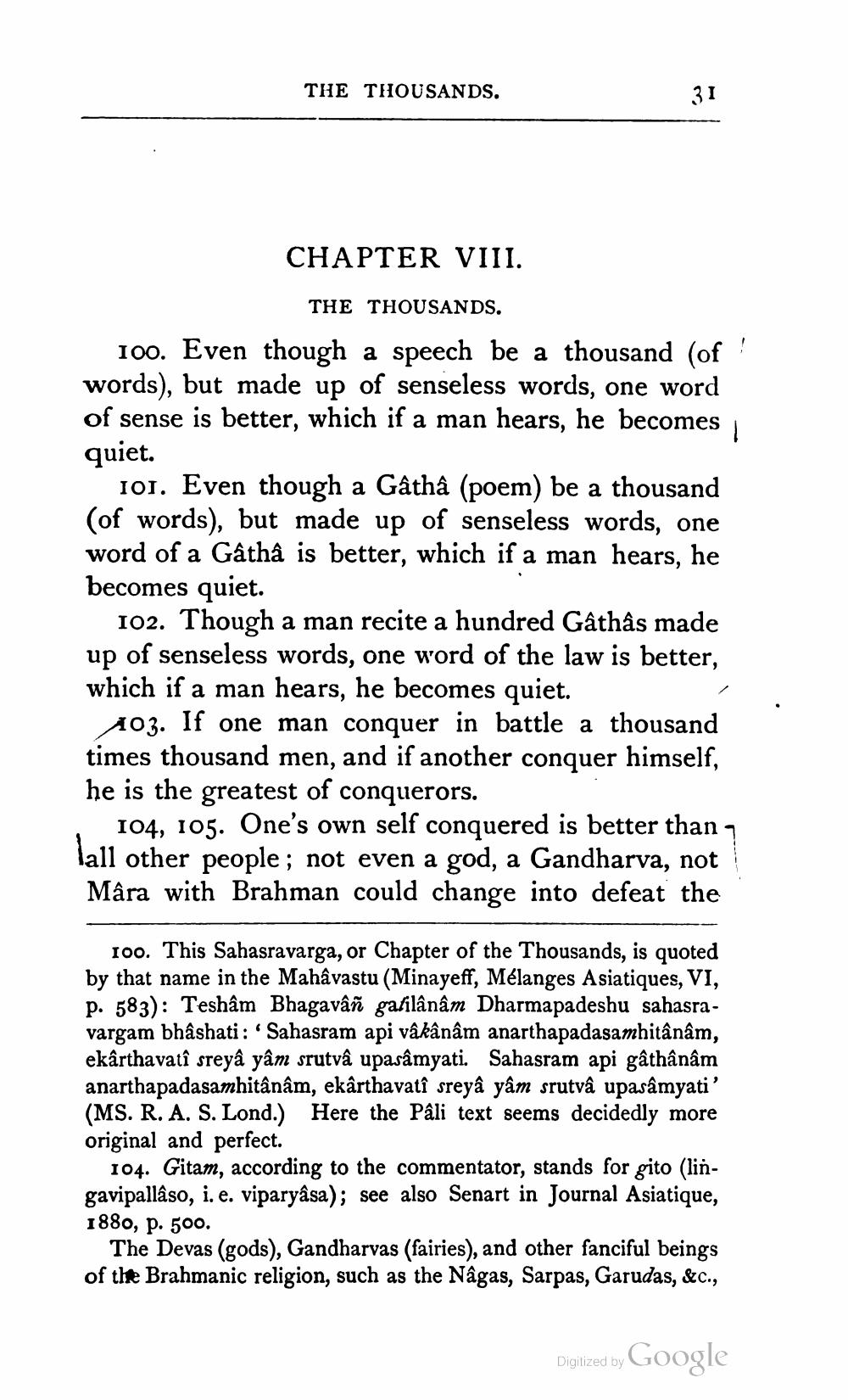________________
THE THOUSANDS.
CHAPTER VIII.
THE THOUSANDS. 100. Even though a speech be a thousand (of words), but made up of senseless words, one word of sense is better, which if a man hears, he becomes quiet.
101. Even though a Gâthâ (poem) be a thousand (of words), but made up of senseless words, one word of a Gâthâ is better, which if a man hears, he becomes quiet.
102. Though a man recite a hundred Gâthâs made up of senseless words, one word of the law is better, which if a man hears, he becomes quiet.
103. If one man conquer in battle a thousand times thousand men, and if another conquer himself, he is the greatest of conquerors. , 104, 105. One's own self conquered is better than a lall other people; not even a god, a Gandharva, not Mâra with Brahman could change into defeat the
100. This Sahasravarga, or Chapter of the Thousands, is quoted by that name in the Mahâvastu (Minayeff, Mélanges Asiatiques, VI, p. 583): Teshâm Bhagavañ gasilânâm Dharmapadeshu sahasravargam bhâshati: 'Sahasram api vâkânâm anarthapadasamhitânâm, ekârthavatî sreyâ yâm srutvâ upasâmyati. Sahasram api gâthânâm anarthapadasamhitânâm, ekârthavatî sreyâ yâm srutvâ upasâmyati' (MS. R. A. S. Lond.) Here the Páli text seems decidedly more original and perfect.
104. Gitam, according to the commentator, stands for gito (lingavipallâso, i. e. viparyâsa); see also Senart in Journal Asiatique, 1880, p. 500.
The Devas (gods), Gandharvas (fairies), and other fanciful beings of the Brahmanic religion, such as the Nâgas, Sarpas, Garudas, &c.,
Digitized by Google




